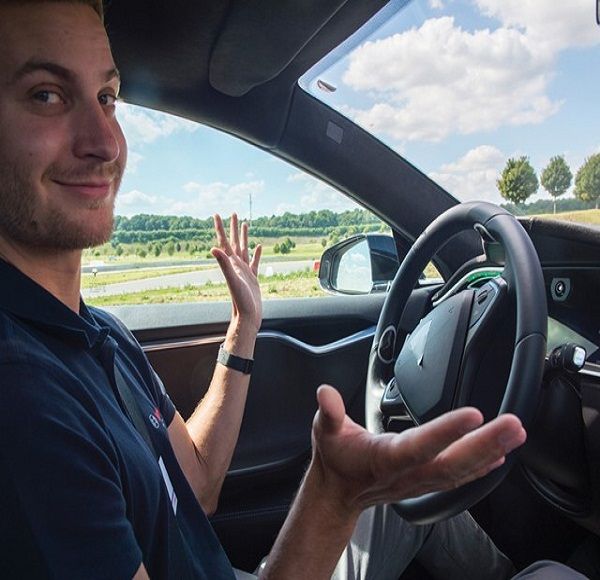A “moral panic” will be caused by the use of self-driving vehicles on public roads, a transport minister has warned.
Last month, the UK became the first European country to allow drivers to take their hands off car steering wheels on public roads, after the Department for Transport gave car manufacturer Ford permission to activate its BlueCruise system on motorways.
The system controls functions such as steering, acceleration, braking and lane positioning in suitably equipped Ford vehicles.
Fully self-driving cars remain banned on public roads in the UK apart from during government-approved trials. Legislation to approve the technology could be introduced as early as 2025.
Asked about the safety of self-driving vehicles by the Commons’ Transport Select Committee, Norman said: “The horrendous thing about this is that we can be rationally certain there are going to be some scare stories, particularly in the early stages, because of the diversity of human life.
“It’s a really interesting question of consent and democratic engagement as to whether or not we as a policy, as a country, are able to weather that moral panic in the pursuit of a future which might lead to an enormously larger number of people not dying.”
The safety record of self-driving vehicles will be “intensely publicly scrutinised”, the minister predicted.
He added: “As people understand the difference between assisted and self-driving [systems], we ought to be able to create a public environment in which there’s acceptance and understanding of that situation, but we can’t bank on it.”
Committee member and Conservative MP Paul Howell compared the issue to smart motorways, where “public opinion kicked back hard” as people “didn’t perceive [them] as being safe”, despite data suggesting otherwise.
National Highways figures indicate they are England’s safest roads in terms of serious or fatal casualties.
However, according to Labour’s analysis of live lane breakdown incidents between 2016 and 2020, 60,925 were believed to be on roads without a permanent hard shoulder. Labour claimed that an estimated 4,000 breakdowns on smart motorways are being missed by “faulty technology”.
Earlier today, Norman also told the committee how evidence suggests that e-scooters tend to be used to replace journeys that would have been made by walking or cycling, rather than in a car.
Asked about trials of rental e-scooters in England, Norman said: “Early on in the rental market I think there was a great deal of excitement about the potential for e-scooters to take people out of cars and to improve on decarbonisation and on air quality.
“We’ve now looked at a lot of the work that’s been done in the trials and it does look like the e-scooters cannibalise active travel rather more than they take people out of cars.”
In August last year, the transport secretary announced a £100m investment to boost the rollout of autonomous vehicles on the country’s roads. The stated ambition was for self-driving cars to hit UK roads by 2025 and “revolutionise public transport and passenger travel”.
However, a government report released in January this year noted that autonomous cars would probably worsen road congestion, as the technology would enable many more drivers to take to the roads.
The analysis was based on predictions estimating that connected and autonomous vehicles could make up half of the nation’s car fleet by 2047, allowing many more people to access this form of transport, including “the elderly and those who do not currently hold a driving licence”, the report said.
As a counterpoint to the concern over increased congestion, the document cheerfully claimed that “the ability to work or relax while travelling in a self-driving car” would mean that occupants would be “more amenable to sitting in traffic”.
Source: E&T










